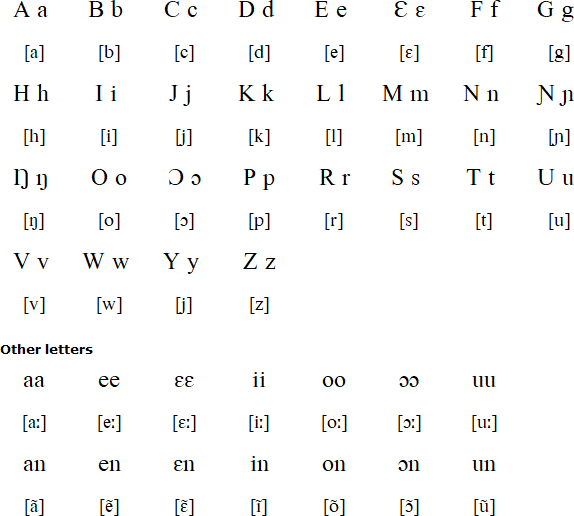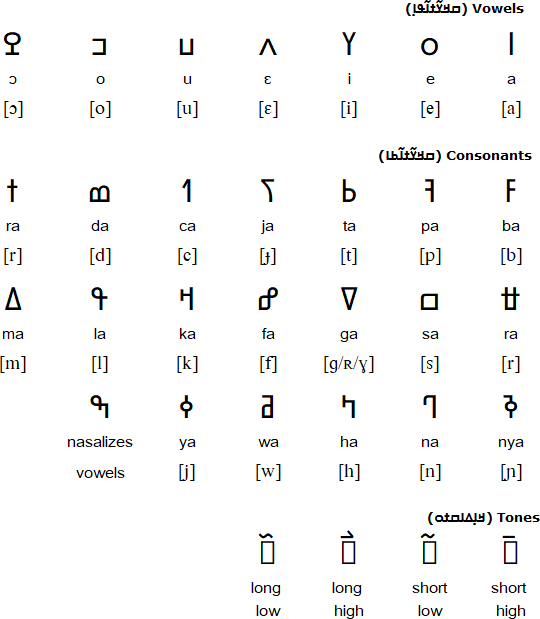Dioula is Western Mande language spoken in Burkina Faso, Ivory Coast and Mali by about 12.5 million people. In Ivory Coast there are 8.5 million speakers of Dioula, about 1.5 million of whom speak it as a native language. They are found particularly in the districts of Savanes and Zanzan in the north of the country, and also in all major cities.
About 3.6 million people in Burkina Faso speak Dioula, particularly in the western provinces of Kossi, Houet and Kénédougou, and also in major cities. It is a de facto language of national identity, and is used as a trade language in western parts of Burkina Faso.
There are about 388,000 speakers of Dioula in Mali, particularly in the southeast of the country. The language is classified by the Malian government as Bambara.
Dioula is also known as Diula, Djula, Dyoula, Dyula, Jula Kong, Kong Jula or Tagboussikan. It is closely related to Bambara, Kita Maninkakan and Eastern Mainikakan.
In Burkina Faso a way to write Dioula with the Latin alphabet was published in 1973 by the National Sub-Commission for Dioula. It became the official alphabet for Dioula in 1979. Since then it has been amended slightly. There is also a way to write Dioula with the Arabic script.
The N'Ko alphabet, which was invented in 1949 by Solomana Kanté from Guinea, is used to write Dioula, and other Manding languages in Burkina Faso and Ivory Coast. However, it is not taught in schools, and has no official status.

Hear how to pronounce Dioula:

Download alphabet charts for Dioula (Excel)
Information about Dioula
https://en.wikipedia.org/wiki/Dyula_language
https://www.ethnologue.com/language/dyu
https://www.webonary.org/dioula-bf/overview/introduction/
https://www.ankataa.com/
Languages written with the Latin alphabet
Page created on 10.05.21. Last modified: 11.05.21
[top]
You can support this site by Buying Me A Coffee, and if you like what you see on this page, you can use the buttons below to share it with people you know.

If you like this site and find it useful, you can support it by making a donation via PayPal or Patreon, or by contributing in other ways. Omniglot is how I make my living.
Note: all links on this site to Amazon.com, Amazon.co.uk
and Amazon.fr
are affiliate links. This means I earn a commission if you click on any of them and buy something. So by clicking on these links you can help to support this site.
[top]